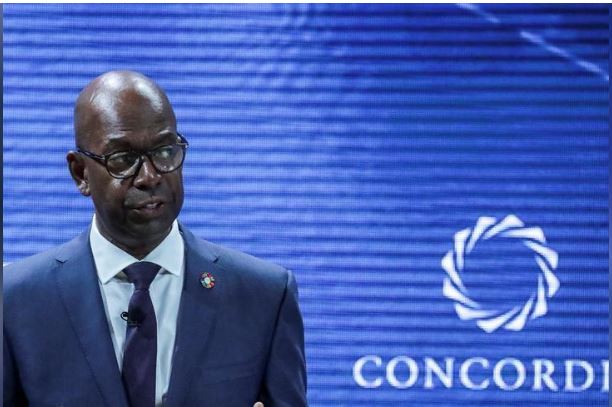Kenya’s dominant telecoms operator Safaricom does not hinder competition, its chief executive Bob Collymore told lawmakers on Monday as he returned to work after a nine-month absence for medical treatment.

The country’s industry regulator recommended in a draft proposal in May that Safaricom, which controls 67 percent of Kenya’s mobile market, should offer rivals access to its transmission sites and its vast network of mobile money outlets to increase competition in the sector.
“Thirty million customers have made a conscious decision to come onto Safaricom’s network,” Collymore told a parliamentary committee when asked if Safaricom was hindering competition.
The committee is looking into whether any measures should be taken to boost competition in the market following the Communications Authority of Kenya’s (CA) draft proposal.
Collymore said he was confident authorities would not seek to punish the success of Safaricom, which is 35 percent-owned by South African group Vodacom with the Kenyan government and Britain’s Vodafone also holding stakes.
“I didn’t get the sense from the committee that they are looking to cut Safaricom down to size,” he said.
“They are really genuinely examining whether there is anything else that needs to be done to encourage more competition in the market place.”
Collymore, who has been receiving medical treatment for an undisclosed illness, appeared to be in good health during a three and a half hour appearance before parliament’s communication and information committee and told Reuters that he would actively run the company again from now on.
He has been in charge since 2010, during which time he has overseen a surge in the company’s share price and dividends as he delivered strong results.
The other big players in the market are Bharti Airtel’s Kenyan unit, which has a 19.7 percent market share, and Telkom Kenya, controlled by London-based Helios Investment, with 8.6 percent of the market.
Safaricom’s share price continued to rise during Collymore’s absence. It gained 11 percent during the past nine months, despite a wobble after the CA’s proposal, with the company forecasting in May that profit before interest and taxes would rise 7-12 percent in the year through April 2019.
“The team has done a fantastic job in my absence, you saw the results in the full year,” Collymore told Reuters after the committee hearing.
“Now it is a little bit more about refocusing on the strategy in the company, ensuring that the strategy remains relevant; it is refreshed.”
Safaricom’s shares were up 0.89 percent on Monday at 28.25 shillings ($0.2814).
($1 = 100.4000 Kenyan shillings)
Editing by Susan Fenton

